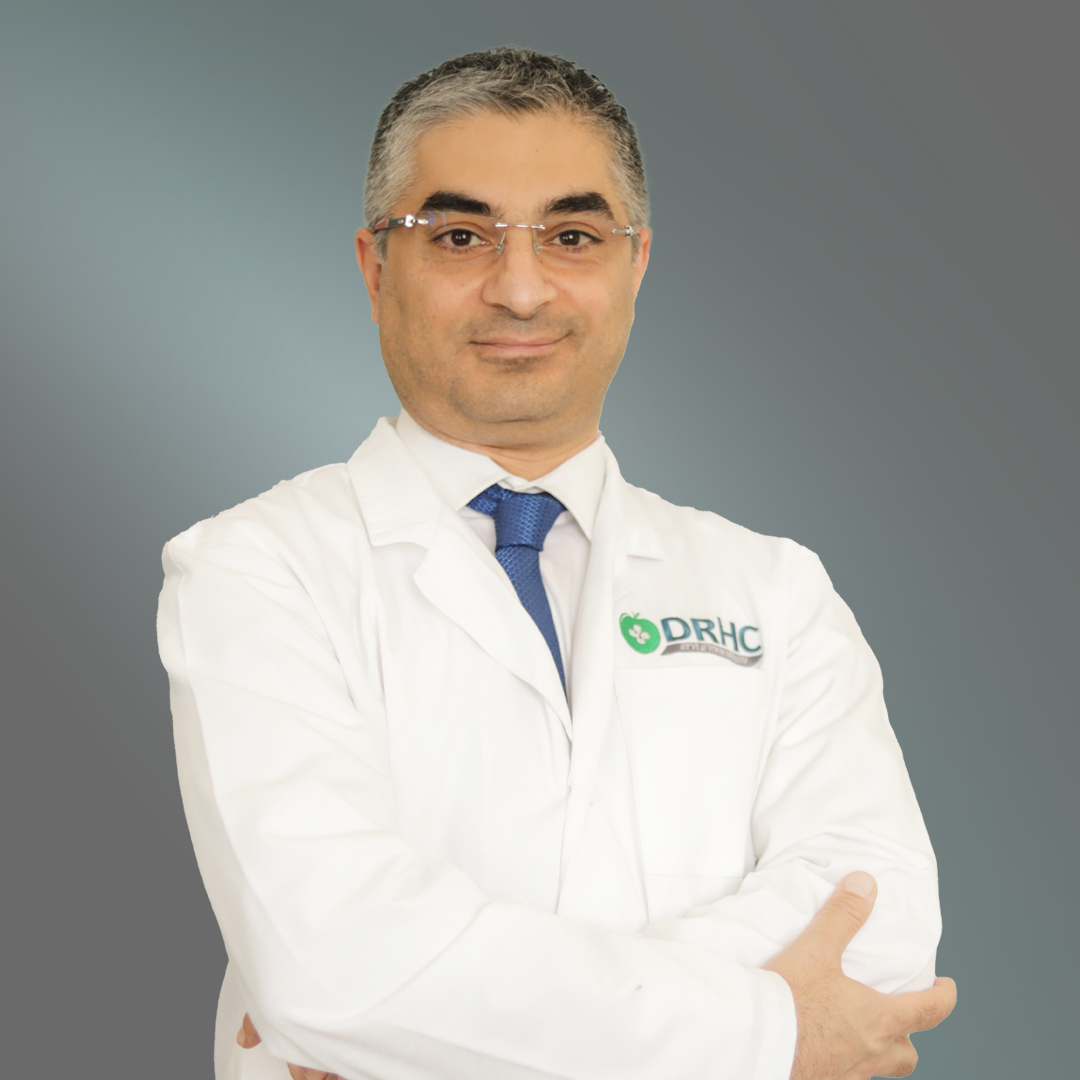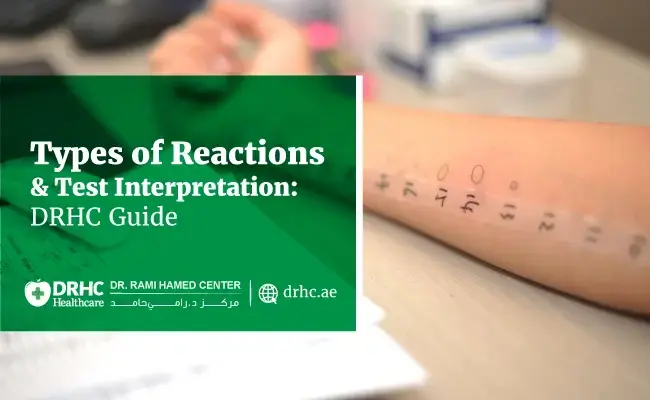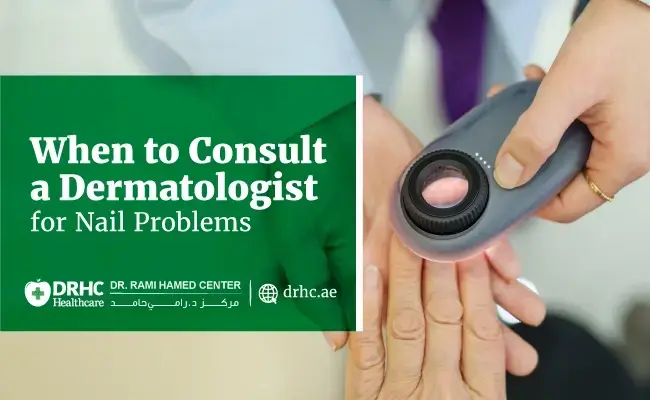
Skin health often takes a back seat in our busy lives, but noticing changes early can make all the difference—especially when it comes to melanoma, the most serious form of skin cancer. At Dr. Rami Hamed Center (DRHC) in Dubai, we understand that the idea of skin cancer can be frightening. The good news is that when detected early, melanoma is highly treatable, and recovery rates are excellent.
What Is Melanoma?
Melanoma is a type of skin cancer that begins in the pigment-producing cells called melanocytes. These cells give your skin its color, but when they grow uncontrollably due to DNA damage—often from excessive sun exposure or tanning—they can form malignant tumors.
Although melanoma is less common than other skin cancers, it’s more dangerous because it can spread to other organs if left untreated.
Why Early Detection Is So Important
Early detection can literally save lives. When melanoma is caught in its initial stages, treatment is often straightforward and highly successful. However, once it spreads deeper into the skin or to other parts of the body, treatment becomes more complex.
Regular skin checks—both at home and by a dermatologist—allow suspicious moles or spots to be identified before they become a serious concern. At DRHC Dubai, our dermatology specialists use advanced diagnostic tools such as dermoscopy and mole mapping to detect even subtle changes early.
Warning Signs: What to Look For
When examining your skin, remember the ABCDE rule for identifying potential melanoma:
- A – Asymmetry: One half of the mole doesn’t match the other.
- B – Border: The edges are irregular, blurred, or jagged.
- C – Color: Uneven shades of brown, black, red, or pink.
- D – Diameter: The spot is larger than 6mm (about the size of a pencil eraser).
- E – Evolving: The mole changes in size, color, or shape over time.
If you notice any of these changes, it’s important to schedule a skin examination at DRHC Dubai as soon as possible.
Melanoma Risk Factors
While anyone can develop melanoma, certain factors increase your risk:
- Frequent sun exposure or use of tanning beds
- Fair skin that burns easily
- A history of sunburns in childhood
- Family history of melanoma
- Having many moles or atypical (unusual-looking) moles
- Weakened immune system
Dubai’s strong year-round sunlight makes sun protection and regular skin monitoring especially important for residents and visitors alike.
Treatment Options for Melanoma at DRHC Dubai
At Dr. Rami Hamed Center, melanoma treatment is tailored to each patient’s condition and stage of disease. Common treatment options include:
1. Surgical Removal
The most effective way to treat early-stage melanoma is to surgically remove the affected area along with a small margin of healthy tissue.
2. Lymph Node Evaluation
In some cases, nearby lymph nodes are checked to ensure the cancer hasn’t spread.
3. Advanced Therapies (for Later Stages)
For more advanced cases, treatments may include immunotherapy, targeted therapy, or radiation therapy, often in collaboration with specialized oncology centers.
Our multidisciplinary team at DRHC ensures that every patient receives coordinated, compassionate care throughout their journey.
Preventive Steps You Can Take
Prevention plays a key role in reducing melanoma risk. Simple lifestyle adjustments can make a big difference:
- Apply a broad-spectrum sunscreen daily (SPF 30 or higher).
- Wear protective clothing, sunglasses, and a wide-brimmed hat.
- Avoid peak sun hours (10 AM–4 PM).
- Perform monthly self-skin checks in good lighting.
- Schedule annual dermatology check-ups at DRHC Dubai.
FAQs About Melanoma Detection and Treatment
1. How often should I have my skin checked?
Ideally once a year, or sooner if you notice any new or changing spots. People with higher risk factors should see a dermatologist every six months.
2. Is melanoma always caused by sun exposure?
While UV exposure is the main cause, genetics and a weakened immune system can also play a role.
3. Are all dark moles dangerous?
No, most moles are harmless. However, any mole that changes in appearance or feels itchy or painful should be evaluated.
4. What is the recovery like after melanoma surgery?
Most patients recover quickly from minor procedures, with minimal discomfort. Recovery time depends on the size and depth of the lesion.
5. How can DRHC help me monitor my skin?
DRHC Dubai offers comprehensive skin checks, mole mapping, and follow-up care, ensuring that any suspicious lesions are identified and treated early.
Take Charge of Your Skin Health
Your skin is your body’s first line of defense—protecting it should be a priority. Early detection of melanoma not only saves lives but also allows for simpler, more effective treatment.
At Dr. Rami Hamed Center (DRHC) in Dubai, our dermatology experts are here to guide you with advanced diagnostic tools, precise treatments, and compassionate care.
Schedule your skin check at DRHC Dubai today and take a proactive step toward lasting skin health.
📞 Call / WhatsApp: +97142798200
📍 Visit Us: Dr Rami Hamed Center, Dubai Healthcare City
🌐 Website: www.drhc.ae
Topic: Dermatology









Leave a comment